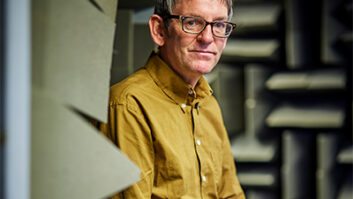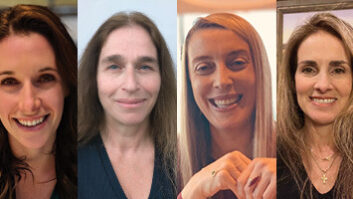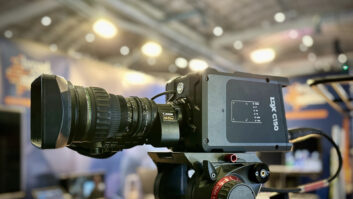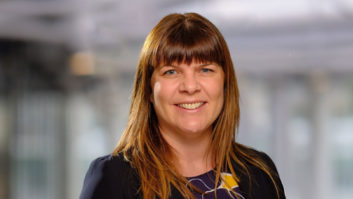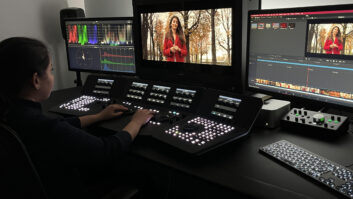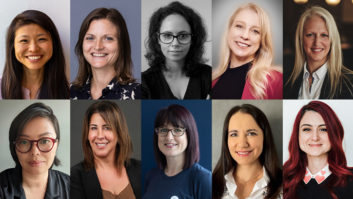Fiona Burton, head of technical operation, Evolutions
Talk us through an average day in your role.
I support teams across various sites, so the first thing on my list is to check in with the engineers and operators and ask them some key questions. The operations team is really the engine room within any media production, whether that’s in the post house or on location work, so I’ll always spend time finding out how things are going with them first. I ask if there are any technical issues I can support on or any operational considerations that need to be discussed more widely. I spend the rest of my day working to resolve any immediate challenges and planning for long-term organisational goals, as well as looking at quotes and reviewing the scope for upcoming jobs.
That’s why I think it’s important to spend a good part of my working week physically on-site. This means I can bounce ideas around and test out workflows, to ensure things run seamlessly. My role requires both a deep level of technical understanding, and a high-level overview of media workflows. So, the work is simultaneously detail orientated and strategic – I love that combination! My week is split between remote and in-person working, so that I’m able to give the team my full attention when I’m on-site, but also focus on the planning and logistical aspects of my job from home as needed.
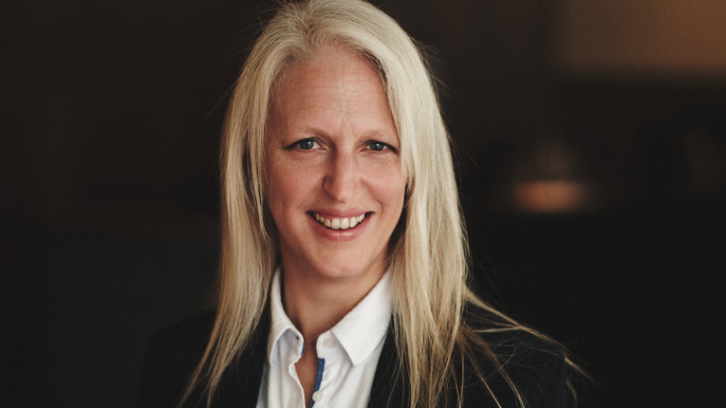
How did you get started in the media industry?
After university I moved over to the UK to explore career opportunities. I started as a runner in at a post-house in Bristol, then over time I realised I had an aptitude for the technical side of things. Understanding creative requirements and then going through the technical development stages, means I’ve really explored different aspects of the media and broadcast industry. Over the years, I have developed a well-rounded knowledge of production, media encoding, Broadcast/IT systems and storage. I’ve worked closely with creative teams from small boutique post-houses right through to global corporations. So, I understand which technical and organisational attributes a project needs in order to succeed, as well as the challenges associated with different types and sizes of companies.
It’s this experience that means I’m passionate about support graduates coming through and demystifying the industry for them. New starters should always feel that they’re being looked after and mentored proactively. Whichever company I’m working for I want all the junior team members to understand potential career progression and their future within the industry. Historically media and broadcast has been a very tough industry for women, particularly on the technical side. While things are changing, we can’t take that progress for granted, so it’s vital to ensure that young women entering junior roles have the support they deserve.
What training did you have before entering the industry?
I majored in screen production and journalism at university in Australia, but also explored other modules on things like visual effects and design. For me it was really important try a wide variety of subjects. Now I take that broad experience and apply it to my day-to-day role, by looking at challenges from lots of different angles. I ask myself how can I break down roadblocks for the technical team?
When managing upwards, I Iike to think of ways that will both make my bosses’ life easier but also deliver solutions that will benefit the overall running of the organisation. Then the goal is to keep iterating on processes and improving set-up, while bringing the team along for the ride. Ultimately, I see myself as a facilitator (both with people and workflows) and it’s the broad range of on-the-job experiences I’ve had that contribute to my current role.
Why do you enjoy working in the industry?
If you are passionate about the industry, then you get to meet your heroes. Working on stunning imagery with talented creatives is a huge plus and it feels special to know you are seeing content before anyone else. Earlier in my career, I worked as an edit assistant on Blue Planet and remember being utterly in awe of those rushes. What inspires me now is working with creatives and having the technical understanding to seamlessly bring their vision to life.
To do that effectively I need to prioritise collaboration and collective problem-solving. We can’t solve technical challenges or optimise operations with a top-down management strategy. It’s important that the whole team works together to share information, and that will ensure things to run smoothly. My focus is on keeping the channels of communication open and my team know they can always raise any difficulties with me. Most of the day-to-day wins come from sitting down and having a chat. Any insights I gather from those discussions can then be used to improve overall operations and champion positive change in the company.
What bit of advice would you offer someone looking to explore a role similar to yours?
It’s important to avoid being too fixed on the direction you want to take, or rigid about the steps in your career path. Make sure you are open to a multitude of opportunities that come your way. This will inform your career progression, help you to explore a comprehensive set of experiences, and develop your transferrable skills.
My role is both manager and mentor, so good communication and on-the-job guidance are vital. It’s important to recognise that within any team, every member is at a different stage in their career development. So, I’m mindful to not lose sight of the fact that a graduate’s needs are very different to those of an experienced engineer. Junior team members need a lot more guidance and help with career progression, whereas for more experienced staff, it’s my role to create the ideal environment for them to succeed in. If you are just starting out in the industry, be open to what you can learn from those around you, and try to drink it all in!

